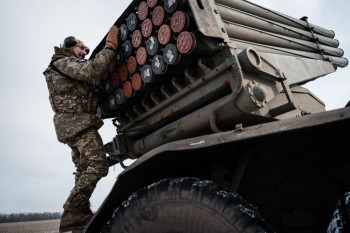Swiss poll: 55% in favor of lifting ban on export of Swiss weapons to conflict zones
A survey in Switzerland found that most respondents are in favor of ending a ban on the export of Swiss weapons to war zones, particularly Ukraine.
The poll by research group Sotomo found that 55% of respondents were in favor of allowing re-exports to proceed, while 40% were against and 5% were undecided.
The Swiss government prohibits countries that purchase Swiss arms from re-exporting them without permission. Swiss neutrality also dictates that Switzerland will not send weapons directly or indirectly to any side of a war. The country also has an embargo on arms sales to Ukraine and Russia.
Earlier on Feb. 7, Reuters reported that Switzerland could end a ban on exports of Swiss weapons to war zones as a shift in public and political opinion puts pressure on the government to end a centuries-long tradition of being a neutral state,










